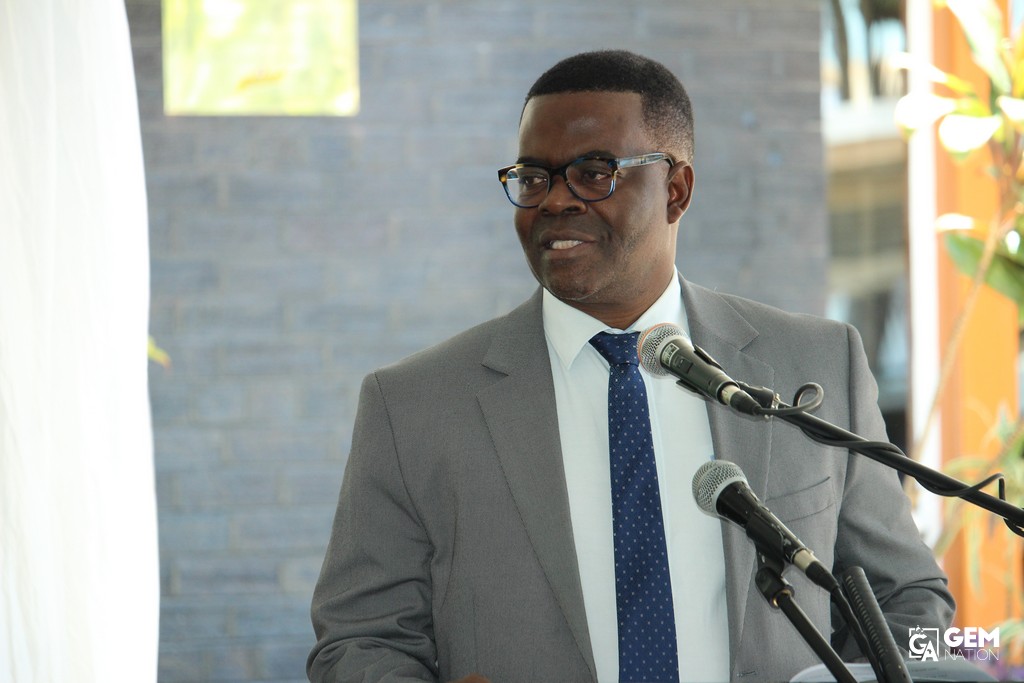Government is crafting Energy Efficiency Policy, which seeks to drive a culture of efficient use of energy and set standards for efficient equipment in industry and all other sectors, including the domestic sector, an official has said.
Speaking at the commissioning of Schweppes Holdings Africa Limited Solar Power Plant Friday today, Energy and Power Development Minister Advocate Fortune Chasi said efficient use of energy can create a virtual power plant where energy saved by efficient use can be channelled towards more productive sectors of the economy.
“Government will continue to work hard to ensure that the cost of putting up renewable energy power plants goes down. We will continue to try to derisk the sector while incentivising investments in renewable energy,” he said.
Chasi said the future of power generation in this country lies predominantly in Renewable Energy.
“My Ministry strongly encourages other private companies to emulate the project we are witnessing here today. Government, through the Regulator has already agreed that solar projects of this nature are eligible for Net Metering or Net Billing as long as they are less than 1 Mega Watt. Finally, I wish to encourage ZETDC and ZESA holdings to embrace Net Metering and make sure that the implementation of these projects is expedited,” he said.
Schweppes Holdings Africa, one of the leading industrial entities has taken the initiative to run its plant using a renewable energy source.
The power plant is a one megawatt (1MW) power plant and will have a significant bearing in: reducing the nation’s carbon footprint, reducing demand on the national grid, increasing the nation’s power supply security and help the country reduce power imports.
The Schweppes Solar Photovoltaic Power Plant is one of the single largest solar rooftop projects in Sub Saharan Africa outside of South Africa and Zimbabwe’s largest rooftop solar system.
Statistics show that the plant will be producing one thousand five hundred and sixty Mega Watt-hours (1 560MWh) annually.
This is equivalent to one million, two hundred and sixteen thousand, eight hundred tonnes (1 216 800T) of carbon emissions per year.
This is roughly fifty six thousand, three hundred and thirty for (56 334) trees being saved in a year.
Two thousand four hundred and forty six panels make up the power plant and it produces up to sixty seven percent (67%) of the power needed to run this facility. The power plant is grid tied without storage and is an ideal candidate for our net-metering regime.
Minster Chasi said was critical that Government continues to supply power to local industries as this drives local production capacity, boosts employment and empowers the economy, through import substitution and export trading among other factors.
He said energy was key enabler for the whole spectrum of our economy and urged Zimbabweans to conserve energy as much as possible.
The Ministry of Energy and Power Development remains committed to combating issues of limited energy access and climate change.
The United Nations Sustainable Energy for All Program (SE4ALL) which has now been adopted as a Sustainable Development Goal (SDG7) has targets of universal access for all by 2030.
Consequently, he said, the Ministry’s vision was to achieve universal access to sustainable and modern energy in Zimbabwe, by 2030.
Renewable energy has been identified as means to the realisation of the SDG 7.
A study by the International Renewable Energy Agency (IRENA), revealed that the country has potential of forty (40GW) Giga Watt of Concentrating Solar Power (CSP), One hundred and twenty (120MW) megawatts of small hydropower, an estimated forty Giga Watts (40GW) of wind power and one Giga Watt (1GW) of biomass, which can provide power for Zimbabwe comfortably and leave excess power for export. We need to do more to harness these climate friendly resources.






